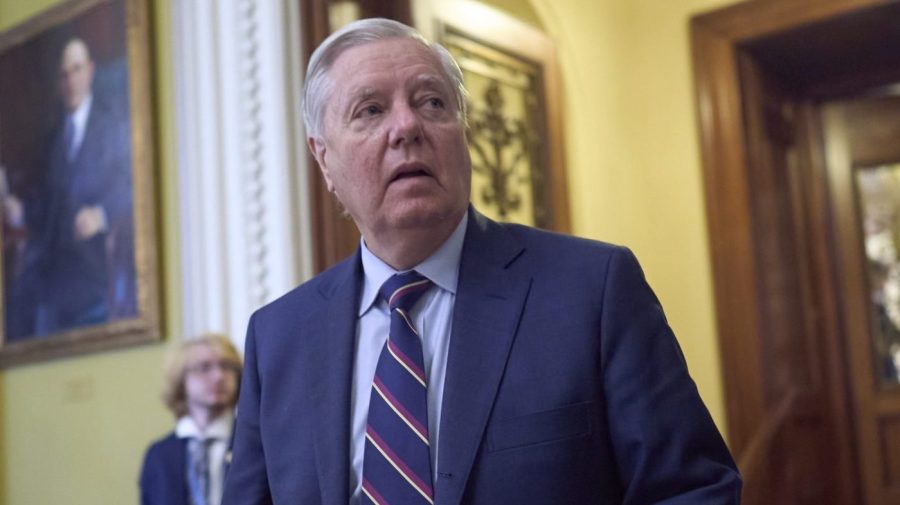The joint resolution, introduced by Sen. Tim Kaine (D-Va.) last month, was defeated in a 51-49 Senate vote. GOP Sens. Lisa Murkowski (Alaska) and Rand Paul (Ky.) joined the Democrats in backing the measure.
The resolution “directs the President to terminate the use of United States Armed Forces for hostilities within or against Venezuela, unless explicitly authorized by a declaration of war or specific authorization for use of military force.”
“We should not be in war without Congress,” Kaine said ahead of the vote.
Sen. Lindsey Graham (R-S.C.), a defense hawk, argued on the Senate floor that the War Powers Act is a “constitutional infringement” on the president’s ability to conduct military operations since the law “takes away the ability to decide military matters and it resides with us.”
“If you can terminate a commander-in-chief’s decision through the War Powers Act, then that constitutional authority has been taken by Congress and that would be a disaster for this country,” Graham said on Thursday.
Sen. Adam Schiff (D-Calif.), meanwhile, said that he does not believe that Americans want to “topple” the Venezuelan regime in “hopes that something better might follow.”
“If the administration feels differently, let them come to the Congress and make the case,” Schiff said on the Senate floor. “Let them come before the American people and make the case. Let them seek an authorization to use force to get rid of Maduro. But let us not abdicate our responsibility.”
Kaine introduced the measure, which has 15 co-sponsors, in mid-October, shortly after Trump confirmed that he authorized the CIA to conduct covert operations in Venezuela.
Despite voting against Kaine’s resolution on Thursday, Sen. Todd Young (R-Ind.) said his vote is “not an endorsement of the Administration’s current course in the Caribbean and Eastern Pacific.”
“As a matter of policy, I am troubled by many aspects and assumptions of this operation and believe it is at odds with the majority of Americans who want the U.S. military less entangled in international conflicts,” he said in a statement after the vote, emphasizing that while “no one has declared war on Venezuela, the creeping expansion of executive war-making—under presidents of both parties—without congressional input or oversight is dangerous.”
The administration has gathered a massive presence of U.S. military force in the U.S. Southern Command region, including warships, fighter jets, spy planes and at least one nuclear-powered submarine.
Trump and other administration officials have turned up the pressure against Venezuelan President Nicolás Maduro, whom they have called an “illegitimate leader.”
During his interview on CBS’s “60 Minutes,” Trump signaled that Maduro’s days are numbered, but did not confirm that U.S. military strikes in Venezuela are imminent.
Schiff and Kaine introduced a similar resolution looking to halt the U.S. military’s strikes against alleged drug-smuggling boats in the Caribbean and Eastern Pacific, but the measure was voted down by GOP senators in early October.
Read the full report at thehill.com.
